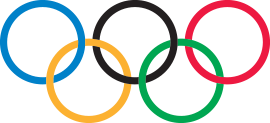Muaythai is a unique and ancient combat sport and martial art form originating from the battle fields where it secured the freedom and independence of ancient Siam to the modern Thailand of today.
In 1992, IFMA was established by a group of visionary men, soon to be joined by incredible women, with the goal to unite muaythai around the world under the same rules and regulations with the goal to be Olympic recognised as a sport and cultural artform. This journey was to take just under 30 years.
In 2006 muaythai became an official sport by overwhelming majority vote of the world recognised sports such as FIFA for football, FIBA for basketball or FINA for swimming. The vote was to approve the sport for recognition by the General Association of International Sports Federations (GAISF) under the official name of “Muaythai” and under the official international federation, IFMA.
2012 was the year where IFMA announced to the world and the Olympic movement, the intent to apply for recognition by the International Olympic Committee. After close to two decades of tireless strategic toil, grind and sweat laying the foundation and groundwork, IFMA marked the official launch of the Muaythai towards IOC campaign. At the foundation of the campaign the five pillars of muaythai were established:
Respect, Honour, Tradition, Excellence and Fair Play.
Over the following years, IFMA continued its strategic development to ensure compliance with the stringent IOC recognition criteria throughout every level of the Organisation, its Governance and its Activities.
The journey has led IFMA towards many accomplishments along the way. Gender Equality, Athlete Representation, Support and Protection, Anti-doping, Education, are some of the many areas that lie at the heart of IFMA’s work, which ensures a steadfast alignment with the Olympic Agenda 2020+5.
Provisional recognition was granted by the IOC in 2016 and muaythai was officially included into the World Games official programme in 2017.
IFMA’s IOC application was the culmination of twenty years strategic planning to achieve the highest sport recognition; that of the IOC, which would benefit our most important assets… our athletes, our future.
A total of 54 criteria points had to be met covering the eight key themes. IFMA fulfilled the criteria and proved that the sport would be a valuable addition to the Olympic movement.
Some of the key areas in which IFMA’s application showed exceptional promise include…
Universality – A total of 9 World Championships have been hosted outside of the motherland, and muaythai is included in seven different multi-sport games under patronage of the IOC.
History & Tradition – The art and sport is rooted in Thailand and had to be protected. We are happy to say that the name of MUAYTHAI is the official name of the sport within the Olympic family. The cultural aspects like “Pee Muay”, “Wai Kru” and “Mongkon” are included in the rules and regulations of the sport and are therefore forever an integral part of the international practice of the sport. The traditional disciplines of Wai Kru and Mai Muaythai have now been officially included as full medal events at all future Major multi-sport event, thereby ensuring the protection and preservation of the cultural and traditional roots of this ancient martial art and combat sport.
Athletes – Cultural values and understanding play an important role within this theme, and the world sport community has lauded IFMA for its educational programme and partnerships with UNWomen and UNESCO. The athletes are the heart of muaythai, with a permanent representative seat on the Executive Committee. Therefore, the athletes have made a valuable contribution towards the application. IFMA will continue to take strict measures to monitor and ensure athletes’ health, safety and security. IFMA is a keen signatory of the World Anti-Doping Agency and will continue educational activities for athletes, entourage, officials in the fight to protect the clean athlete. To that end, in and out of competition testing will continue and heavy sanctions on cheaters will be observed. Match fixing has no place in the IFMA family, so strict rules and procedures to fight against manipulation of competitions are in place and seminars are organised to educate stakeholders on this key issue.
Development of the IF/Sport – Strategic planning is key to ensure grassroots programmes, sport development, especially the growth and encouragement of women in muaythai, media management and continued technical evaluation.
Sport & Active Society – muaythai is a sport for every body. Special initiatives are aimed at those with different abilities. IFMA prides itself on its policy of non-discrimination, fair play and solidarity, sustainability – all aimed at using the power of sport and muaythai to build a better world.
On June 10th, the IOC Executive Board unanimously agreed to recommend IFMA for Full Recognition at the 138th IOC session in Tokyo.
Today, the IOC General Assembly has granted Full Recognition to IFMA and Muaythai as a full member and Olympic recognised international federation and sport. IFMA congratulates whole-heartedly the fellow provisionally recognised sports and International Federations that were approved alongside us in yesterday’s meeting, namely, The International Cheerleading Union (ICU), The International Sambo Federation (FIAS), The International Federation Icestocksport (IFI), The World Association of Kickboxing Organisations (WAKO) and World Lacrosse (WL).
The IFMA wishes to honour and thank the founders, presidents and executive members present and past, all of whom have been undeniably integral to today’s achievements.
IFMA President Dr. Sakchye Tapsuwan said “Special appreciation and gratitude certainly must go to the IFMA international office led by Director Charissa Tynan who over the last years has worked to ensure that all our strategic goals have not only been implemented but also documented in our extensive 1000+ page application dossier to showcase to the IOC our strict alignment with the Olympic Agenda 2020 + 5.”
Vice President General Udomdej Sitabutr said “Thanks also must go to the hardworking IFMA Executive Committee and Ad-Hoc Management Committee who have contributed to the initial and review application process, to support in the compilation of the application documentation.”
All the IFMA stakeholders and athletes of the 146 member national federations express deep gratitude to the IOC, led by President Thomas Bach for their trust, Thailand IOC Member Khunying Patama Leeswatrakul and a special thanks to the IOC sports department for their cooperation and guidance throughout the application process. Thanks also to the President of the National Olympic Committee of Thailand General Prawit Wongsuwan whom is also the Chair of the Muaythai Committee.
Last but most certainly not least, The IFMA family expresses deepest appreciation and gratitude to its Secretary General Stephan Fox. In his position as the AIMS President, he has achieved historical success in facilitating the recognition of a record six sports from the AIMS family, which notably is the highest number of sports ever to be proposed for full recognition in a single IOC Executive Board meeting. This incredible achievement very much speaks for his leadership and commitment not only within IFMA but also the wider sport movement.
IFMA’s mantra reflects the ideal that Together we are one: “One world, one Muaythai.”
This acknowledges IFMA’s strong future focus which ensures Muaythai is here to stay, and the highest sports authority in the world has also acknowledged the beauty of our sport. A sport that is driven by family, respect and equality.


